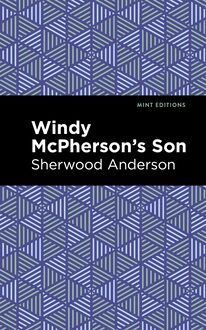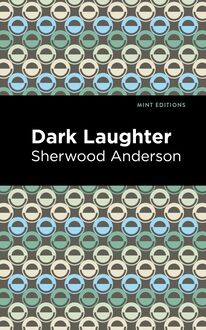-
 Univers
Univers
-
 Ebooks
Ebooks
-
 Livres audio
Livres audio
-
 Presse
Presse
-
 Podcasts
Podcasts
-
 BD
BD
-
 Documents
Documents
-
- Cours
- Révisions
- Ressources pédagogiques
- Sciences de l’éducation
- Manuels scolaires
- Langues
- Travaux de classe
- Annales de BEP
- Etudes supérieures
- Maternelle et primaire
- Fiches de lecture
- Orientation scolaire
- Méthodologie
- Corrigés de devoir
- Annales d’examens et concours
- Annales du bac
- Annales du brevet
- Rapports de stage
La lecture à portée de main
Vous pourrez modifier la taille du texte de cet ouvrage
Découvre YouScribe en t'inscrivant gratuitement
Je m'inscrisDécouvre YouScribe en t'inscrivant gratuitement
Je m'inscrisEn savoir plus
Vous pourrez modifier la taille du texte de cet ouvrage
En savoir plus

Description
Bracebridge Hall, written by the esteemed author, Washington Irving, is a collection of location-based character sketches, detailing the lives and personalities of the occupants of a countryside manor in Yorkshire, England, owned by a squire. Narrated by an American man who is an old acquaintance of the squire, Bracebridge Hall follows the events leading up to the wedding of the squire’s son, Guy, and his bride-to-be, Julia. Beginning with the arrival of the guests, the narrative jumps from character to character to tell their individual stories and relations to the wedding. Alongside the narratives of the wedding guests, a vivid picture of the historic Bracebridge manor is painted with careful attention to detail. The décor and architecture of the home pays homage to a time long before its own, which is even reflected in the people who serve in the estate. Many of the servants were born in the manor and inherited their parents’ job and uniform. As the wedding preparations continue, readers are allowed a privileged listen to the servant’s gossip, including the story of the rumored love affair between the squire and the eldest, most respected servant. After the gossip and conjecture of the servants completes a portrait of the manor’s history, the ceremony proceeds, honoring English tradition and proving to be an idealistic and envious affair of indulgence.
With humor and sweetness, Washington Irving explores the personalities and side plots of a diverse group of characters. Including people of all classes, Bracebridge Hall portrays an idealized picture of country life in early 19th century England. The episodic form and intricate prose of Washington Irving creates an enchanting and entertaining reading experience for audiences nearly two centuries later, serving as a testament to Irving’s bold and voluptuous characterization of both the setting and characters.
This edition of Washington Irving’s Bracebridge Hall is redesigned with the contemporary reader in mind. With a new, eye-catching cover design and a stylish font, Bracebridge Hall is both readable and modern.
Sujets
Informations
| Publié par | Mint Editions |
| Date de parution | 05 janvier 2021 |
| Nombre de lectures | 0 |
| EAN13 | 9781513274713 |
| Langue | English |
| Poids de l'ouvrage | 3 Mo |
Informations légales : prix de location à la page 0,0400€. Cette information est donnée uniquement à titre indicatif conformément à la législation en vigueur.
Extrait
Bracebridge Hall
Washington Irving
Bracebridge Hall was first published in 1822.
This edition published by Mint Editions 2021.
ISBN 9781513269719 | E-ISBN 9781513274713
Published by Mint Editions®
minteditionbooks .com
Publishing Director: Jennifer Newens
Design & Production: Rachel Lopez Metzger
Typesetting: Westchester Publishing Services
C ONTENTS T HE H ALL T HE B USY M AN F AMILY S ERVANTS T HE W IDOW T HE L OVERS F AMILY R ELIQUES A N O LD S OLDIER T HE W IDOW’S R ETINUE R EADY- M ONEY J ACK B ACHELORS A L ITERARY A NTIQUARY T HE F ARM- H OUSE H ORSEMANSHIP L OVE S YMPTOMS F ALCONRY H AWKING F ORTUNE- T ELLING L OVE- C HARMS A B ACHELOR’S C ONFESSIONS G IPSIES V ILLAGE W ORTHIES T HE S CHOOLMASTER T HE S CHOOL A V ILLAGE P OLITICIAN T HE R OOKERY M AY- D AY T HE C ULPRIT L OVERS’ T ROUBLES T HE W EDDING
T HE H ALL
The ancientest house, and the best for housekeeping in this county or the next, and though the master of it write but squire, I know no lord like him.
—M ERRY B EGGARS
T he reader, if he has perused the volumes of the Sketch Book, will probably recollect something of the Bracebridge family, with which I once passed a Christmas. I am now on another visit at the Hall, having been invited to a wedding which is shortly to take place. The squire’s second son, Guy, a fine, spirited young captain in the army, is about to be married to his father’s ward, the fair Julia Templeton. A gathering of relations and friends has already commenced, to celebrate the joyful occasion; for the old gentleman is an enemy to quiet, private weddings. “There is nothing,” he says, “like launching a young couple gaily, and cheering them from the shore; a good outset is half the voyage.”
Before proceeding any farther, I would beg that the squire might not be confounded with that class of hard-riding, fox-hunting gentlemen so often described, and, in fact, so nearly extinct in England. I use this rural title, partly because it is his universal appellation throughout the neighbourhood, and partly because it saves me the frequent repetition of his name, which is one of those rough old English names at which Frenchmen exclaim in despair.
The squire is, in fact, a lingering specimen of the old English country gentleman; rusticated a little by living almost entirely on his estate, and something of a humourist, as Englishmen are apt to become when they have an opportunity of living in their own way. I like his hobby passing well, however, which is, a bigoted devotion to old English manners and customs; it jumps a little with my own humour, having as yet a lively and unsated curiosity about the ancient and genuine characteristics of my “fatherland.”
There are some traits about the squire’s family also, which appear to me to be national. It is one of those old aristocratical families, which, I believe, are peculiar to England, and scarcely understood in other countries; that is to say, families of the ancient gentry, who, though destitute of titled rank, maintain a high ancestral pride; who look down upon all nobility of recent creation, and would consider it a sacrifice of dignity to merge the venerable name of their house in a modern title.
This feeling is very much fostered by the importance which they enjoy on their hereditary domains. The family mansion is an old manor-house, standing in a retired and beautiful part of Yorkshire. Its inhabitants have been always regarded through the surrounding country as “the great ones of the earth;” and the little village near the hall looks up to the squire with almost feudal homage. An old manor-house, and an old family of this kind, are rarely to be met with at the present day; and it is probably the peculiar humour of the squire that has retained this secluded specimen of English housekeeping in something like the genuine old style.
I am again quartered in the panelled chamber, in the antique wing of the house. The prospect from my window, however, has quite a different aspect from that which it wore on my winter visit. Though early in the month of April, yet a few warm, sunshiny days have drawn forth the beauties of the spring, which, I think, are always most captivating on their first opening. The parterres of the old-fashioned garden are gay with flowers; and the gardener has brought out his exotics, and placed them along the stone balustrades. The trees are clothed with green buds and tender leaves; when I throw open my jingling casement I smell the odour of mignonette, and hear the hum of the bees from the flowers against the sunny wall, with the varied song of the throstle, and the cheerful notes of the tuneful little wren.
While sojourning in this stronghold of old fashions, it is my intention to make occasional sketches of the scenes and characters before me. I would have it understood, however, that I am not writing a novel, and have nothing of intricate plot, or marvellous adventure, to promise the reader. The Hall of which I treat has, for aught I know, neither trap-door, nor sliding-panel, nor donjon-keep: and indeed appears to have no mystery about it. The family is a worthy, well-meaning family, that, in all probability, will eat and drink, and go to bed, and get up regularly, from one end of my work to the other; and the squire is so kind-hearted an old gentleman, that I see no likelihood of his throwing any kind of distress in the way of the approaching nuptials. In a word, I cannot foresee a single extraordinary event that is likely to occur in the whole term of my sojourn at the Hall.
I tell this honestly to the reader, lest when he find me dallying along, through every-day English scenes, he may hurry ahead, in hopes of meeting with some marvellous adventure farther on. I invite him, on the contrary, to ramble gently on with me, as he would saunter out into the fields, stopping occasionally to gather a flower, or listen to a bird, or admire a prospect, without any anxiety to arrive at the end of his career. Should I, however, in the course of my loiterings about this old mansion, see or hear anything curious, that might serve to vary the monotony of this every-day life, I shall not fail to report it for the reader’s entertainment.
For freshest wits I know will soon be wearie
Of any book, how grave so e’er it be,
Except it have odd matter, strange and merrie,
Well sauc’d with lies and glared all with glee. 1
1 . “ Mirror for Magistrates. ”
T HE B USY M AN
A decayed gentleman, who lives most upon his own mirth and my master’s means, and much good do him with it. He does hold my master up with his stones, and songs, and catches, and such tricks, and jigs you would admire—he is with him now.
—J OVIAL C REW
B y no one has my return to the Hall been more heartily greeted than by Mr. Simon Bracebridge, or Master Simon, as the squire most commonly calls him. I encountered him just as I entered the park, where he was breaking a pointer, and he received me with all the hospitable cordiality with which a man welcomes a friend to another one’s house. I have already introduced him to the reader as a brisk old bachelor-looking little man; the wit and superannuated beau of a large family connection, and the squire’s factotum. I found him, as usual, full of bustle; with a thousand petty things to do, and persons to attend to, and in chirping good-humour; for there are few happier beings than a busy idler; that is to say, a man who is eternally busy about nothing.
I visited him, the morning after my arrival, in his chamber, which is in a remote corner of the mansion, as he says he likes to be to himself, and out of the way. He has fitted it up in his own taste, so that it is a perfect epitome of an old bachelor’s notions of convenience and arrangement. The furniture is made up of odd pieces from all parts of the house, chosen on account of their suiting his notions, or fitting some corner of his apartment; and he is very eloquent in praise of an ancient elbow-chair, from which he takes occasion to digress into a censure on modern chairs, as having degenerated from the dignity and comfort of high-backed antiquity.
Adjoining to his room is a small cabinet, which he calls his study. Here are some hanging shelves, of his own construction, on which are several old works on hawking, hunting, and farriery, and a collection or two of poems and songs of the reign of Elizabeth, which he studies out of compliment to the squire; together with the Novelists’ Magazine, the Sporting Magazine, the Racing Calendar, a volume or two of the Newgate Calendar, a book of peerage, and another of heraldry.
His sporting dresses hang on pegs in a small closet; and about the walls of his apartment are hooks to hold his fishing-tackle, whips, spurs, and a favourite fowling-piece, curiously wrought and inlaid, which he inherits from his grandfather. He has also a couple of old single-keyed flutes, and a fiddle, which he has repeatedly patched and mended himself, affirming it to be a veritable Cremona: though I have never heard him extract a single note from it that was not enough to make one’s blood run cold.
From this little nest his fiddle will often be heard, in the stillness of mid-day, drowsily sawing some long-forgotten tune; for he prides himself on having a choice collection of good old English music, and will scarcely have anything to do with modern composers. The time, however, at which his musical powers are of most use is now and then of an evening, when he plays for the children to dance in the hall, and he passes among them and the servants for a perfect Orpheus.
H IS CHAMBER ALSO BE ARS EVIDENCE of his various avocations; there are half copied sheets of music; designs for needlework; sketches of landscapes, very indifferently executed; a camera lucida; a magic lantern, for which he is endeavouring to paint glasses; in a word, it is the cabinet of a man of many accomplishments, who knows a little of everything, and does nothing we
-
 Univers
Univers
-
 Ebooks
Ebooks
-
 Livres audio
Livres audio
-
 Presse
Presse
-
 Podcasts
Podcasts
-
 BD
BD
-
 Documents
Documents
-
Jeunesse
-
Littérature
-
Ressources professionnelles
-
Santé et bien-être
-
Savoirs
-
Education
-
Loisirs et hobbies
-
Art, musique et cinéma
-
Actualité et débat de société
-
Jeunesse
-
Littérature
-
Ressources professionnelles
-
Santé et bien-être
-
Savoirs
-
Education
-
Loisirs et hobbies
-
Art, musique et cinéma
-
Actualité et débat de société
-
Actualités
-
Lifestyle
-
Presse jeunesse
-
Presse professionnelle
-
Pratique
-
Presse sportive
-
Presse internationale
-
Culture & Médias
-
Action et Aventures
-
Science-fiction et Fantasy
-
Société
-
Jeunesse
-
Littérature
-
Ressources professionnelles
-
Santé et bien-être
-
Savoirs
-
Education
-
Loisirs et hobbies
-
Art, musique et cinéma
-
Actualité et débat de société
- Cours
- Révisions
- Ressources pédagogiques
- Sciences de l’éducation
- Manuels scolaires
- Langues
- Travaux de classe
- Annales de BEP
- Etudes supérieures
- Maternelle et primaire
- Fiches de lecture
- Orientation scolaire
- Méthodologie
- Corrigés de devoir
- Annales d’examens et concours
- Annales du bac
- Annales du brevet
- Rapports de stage
















